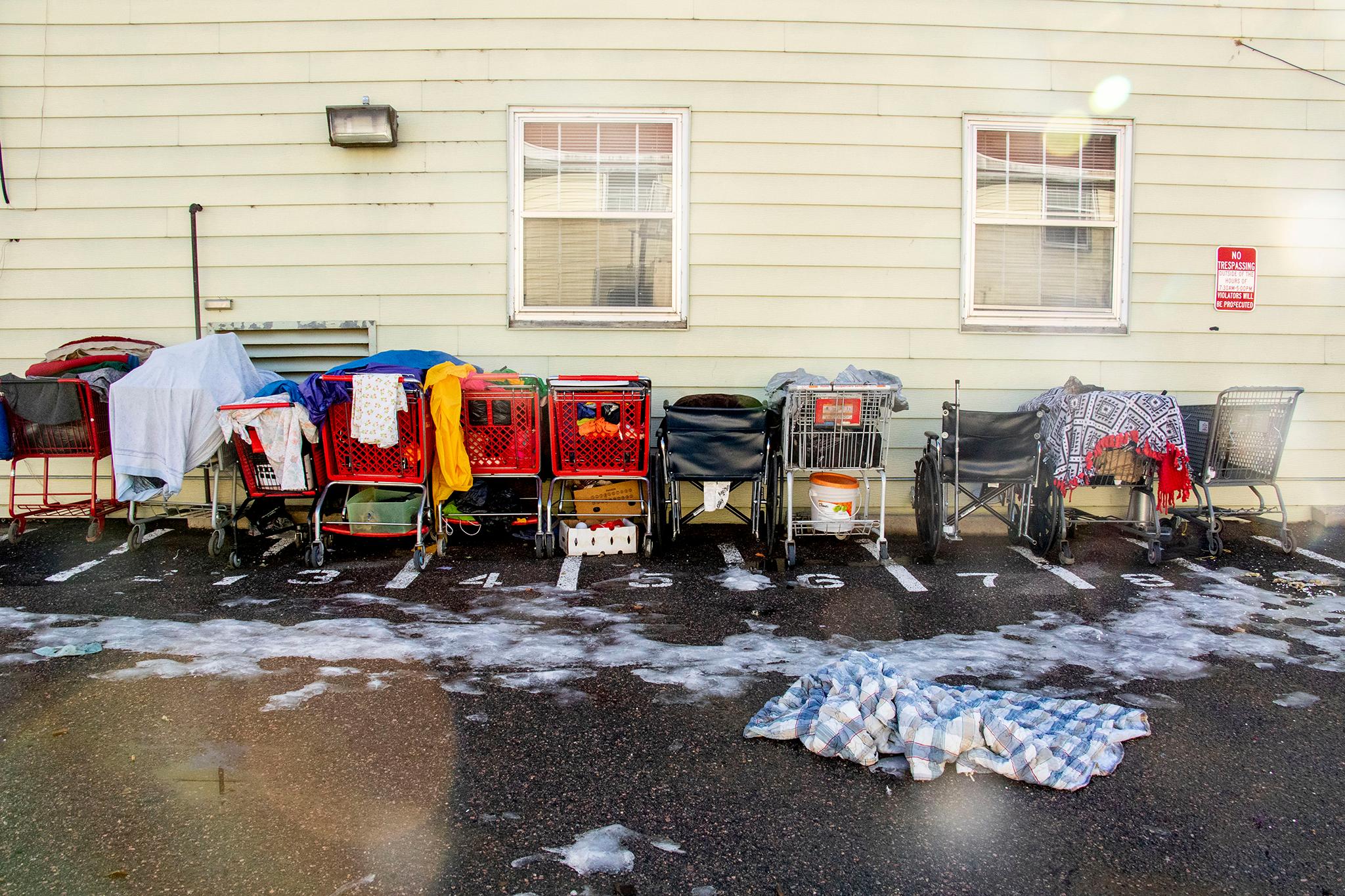
Aurora has finalized the details of its urban camping ban and will soon begin sweeping homeless encampments from public property.
Earlier this year, Mayor Mike Coffman led the Republican-controlled City Council in introducing and passing an ordinance outlining the ban. It can only be enforced if occupants are given a 72-hour notice, and there must be enough space in a local homeless shelter to accommodate them.
If those conditions aren’t met, officials will not be allowed to disperse a camp.
Aurora will officially begin sweeping camps as soon as the city manager signs off on it, which a city spokesperson says will happen “as soon as possible.”
Although the ordinance passed several weeks ago, council members were finalizing a related policy to safeguard the “personal documents and identifications” of unhoused people found at dispersed camps. The policy does not guarantee city employees will sort through trash and debris to find these documents, however. Found items will be stored for up to a year at the Aurora Day Resource Center.
How the ban will be enforced
The city will soon begin to check in on encampments previously reported by the public, but a report does not guarantee the camp will be swept. Authorities must follow an abatement process the city has outlined before launching a full cleanup.
Under that procedure, an outreach team that is “not an enforcement entity” will make initial contact with a camp and provide “community services and resources” to occupants. After that, several city agencies must determine if the camp meets the criteria for sweeping, which is primarily based on location. Those found in violation of city law will be provided verbal and written notice of the abatement 72 hours in advance.
It is not clear how Aurora will handle the shortage of homeless shelter beds available compared to the number of individuals who could be displaced by sweeps. The city’s 2020 Point-In-Time report found there were more than 400 people experiencing homelessness within city limits. The city says there are up to 150 shelter beds available on any given night, and that it would need about 8,500 housing units to accommodate everyone in need of affordable housing options.
Opponents of the camping ban say it does nothing to fix the root cause of homelessness.
“I am glad that they are putting in the very basic minimal protections for people's essential personal and identification documents, but that alone cannot deflect from the harm the camping ban will cause to the unhoused community in Aurora,” said Colorado Coalition for the Homeless spokesperson Cathy Alderman.
The 10-year-anniversary of Denver’s urban camping ban is later this week.









